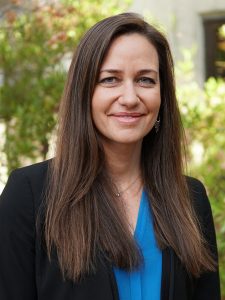New faculty spotlight: Alison Fohner
For University of Washington Department of Epidemiology (Epi) Assistant Professor Alison Fohner, microscopic DNA offers a big view into population health.
Fohner’s interest in genetics began during her undergraduate studies. Since then, the human genome has been the foundation to her research in improving precision medicine. She approaches genetic epidemiology through an ELSI (ethical, legal, social implications) lens and aims to promote equity and justice in the benefit of and access to genetic information in health settings.
After receiving her Ph.D. at the UW in Public Health Genetics, Fohner has returned to the UW to teach and conduct research. She teaches in the Institute of Public Health Genetics (IPHG), an interdisciplinary program in the School of Public Health that explores the application of genomics in public health and is an adjunct investigator at Kaiser Permanente Northern California Division of Research.
1. What are your research focuses?

My goal is to improve precision medicine and population health by leveraging the vast data available in genomes and electronic health records, and to do so ethically and equitably. For example, recent projects include using machine learning with medications from the EHR to quantify variability in sepsis patients and collaborating with Alaska Native communities to identify genetic variation common in their communities and that would increase risk for medication side effects. As faculty in the Department of Epidemiology, my primary teaching and program responsibilities are with IPHG, a unique interdisciplinary program in the UW School of Public Health, which trains students in genetic epidemiology and its related ethical, legal and social implications. I am proud to be a graduate of the IPHG program and think it’s important both to train researchers how to conduct robust research and also how to analyze the impacts of these studies and results within the larger societal fabric.
2. Why did you become interested in this type of work?
As an undergraduate, I was fascinated by the power of genetics to explain risk of disease and adverse events to medications. With DNA, we can understand how to improve human health in ways that we cannot just by looking at someone or by studying their medical history. As I began research in the field, I learned that every research project has inescapable ethical considerations, such as potential risks for research participants or how to implement research findings, and that these aspects are important and interesting challenges in epidemiology research.
3. How does it feel to be back at the UW?
The UW and Pacific Northwest are special places. I’m excited for the opportunity to work with innovative and interdisciplinary teams both at UW and at the surrounding research institutions. My favorite part of my role so far has been meeting with new colleagues and being inspired by their work. My commute takes me through the heart of campus every day and I’m continually reminded of the unique beauty and vibrant community at UW.
4. What do you like to do outside of work?
I love backpacking and being outside in the mountains, especially during blueberry season. As a student, the UW programs in rock climbing and white water kayaking sparked some of my strongest, lasting friendships.